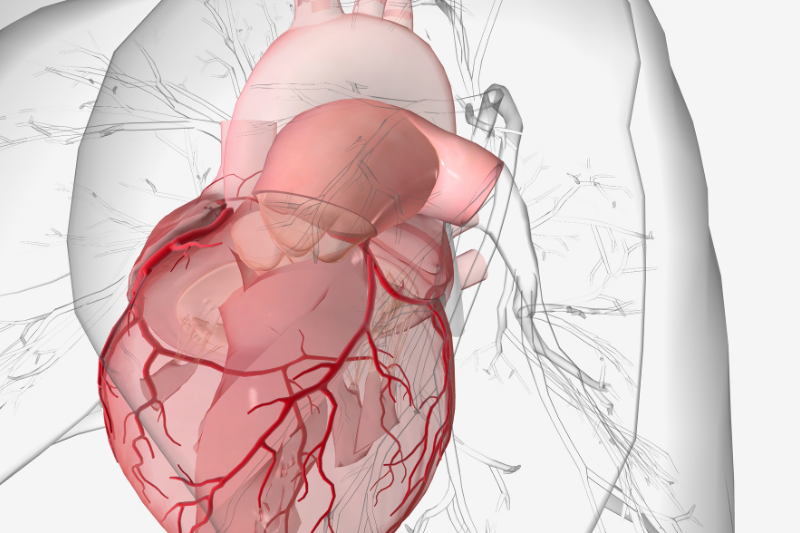Introduction
In the vibrant tapestry of Indian life, a silent threat looms large: heart disease. As the leading cause of death in the country, claiming over 2.4 million lives annually, it’s not just a statistic; it’s a personal story unfolding in families across the nation. But amidst this sobering reality, a beacon of hope emerges – early detection and prevention. Let’s delve into the factors fueling this epidemic, explore actionable steps for prevention, and empower ourselves to rewrite the narrative.
Understanding the Risk Factors
India’s unique socio-economic landscape intertwines with biological predispositions to create a perfect storm for heart disease. Here are some key factors:
- Genetic Predisposition: South Asians are 2-3 times more likely to develop heart disease compared to other populations, partly due to a higher prevalence of genetic risk factors like ApoE genotypes and lipoprotein(a) levels.
- Dietary Habits: The rising popularity of processed foods, high in saturated and trans fats (up to 20% of daily energy intake), coupled with decreasing consumption of fruits and vegetables (less than 3 servings daily), contributes to unhealthy cholesterol levels and obesity.
- Physical Inactivity: Increasing urbanization and desk-bound lifestyles lead to only 21% of Indians meeting recommended physical activity levels, contributing to a growing burden of obesity and associated heart disease risks.
- Tobacco Use: Despite a decline, 25% of adults still use tobacco, significantly increasing the risk of heart attack and stroke. Alarmingly, 14% of youth (13-17 years) also use tobacco.
- Stress and Mental Health: The pressures of modern life, coupled with limited access to mental health support, contribute to chronic stress, a potent risk factor for heart disease. Nearly 15% of Indians experience mental health disorders, with significant co-occurrence with heart disease.
Data and Stats
- Age-standardized death rate from cardiovascular diseases (CVDs) in India is 272 per 100,000, higher than the global average of 235 per 100,000.
- One in four Indians above 18 has high blood pressure, a major risk factor for heart disease.
- Nearly 8% of Indian adults have diabetes, another significant contributor to heart disease risk.
- The economic cost of CVDs in India is estimated at USD 180 billion annually.
Early Detection
While these risk factors present challenges, early detection empowers individuals to take control:
- Regular Health Checkups: Early diagnosis through regular checkups, including blood pressure and cholesterol monitoring, allows for timely intervention and lifestyle changes. The National Health Mission (NHM) offers free screenings for non-communicable diseases like heart disease: https://nhm.gov.in/
- Know Your Family History: Understanding your family’s history of heart disease can alert you to potential risks and encourage proactive measures.
- Embrace Home Monitoring: Simple tools like home blood pressure monitors and fitness trackers can empower individuals to monitor their health and identify potential concerns early.
Preventive Measures
Remember, prevention is key. Here are actionable steps you can take:
- Embrace a Heart-Healthy Diet: Opt for fruits, vegetables, whole grains, and lean protein, while limiting saturated and trans fats, sugar, and salt. The EatRight campaign by FSSAI promotes healthy eating habits: https://eatrightindia.gov.in/
- Move Your Body: Aim for at least 30 minutes of moderate-intensity exercise most days of the week. Find activities you enjoy, whether it’s brisk walking, dancing, or swimming. The Fit India Movement encourages physical activity adoption: https://fitindia.gov.in/
- Manage Stress: Practice relaxation techniques like yoga, meditation, or deep breathing to effectively manage stress and its impact on your heart.
- Quit Smoking: If you smoke, quitting is the single most important step you can take to protect your heart. Seek support from National Tobacco Quitline (1800-22-2340) and programs like mQuit: https://ntcp.mohfw.gov.in/
- Manage Existing Conditions: If you have diabetes, high blood pressure, or high cholesterol, diligently manage these conditions through medication, lifestyle changes, and regular doctor consultations.

Beyond Individual Action
Individual efforts are crucial, but a supportive ecosystem is vital for sustained change:
- Raise Awareness: Talk openly about heart disease, dispel myths, and encourage others to prioritize their heart health. Share information and resources from organizations like:
- The Indian Heart Association (IHA): https://indianheartassociation.org/
- World Health Organization (WHO): https://www.who.int/news-room/fact-sheets/detail/cardiovascular-diseases
- Advocate for Policy Change: Support policies promoting healthy food choices, increased physical activity opportunities, and accessible healthcare for all. Push for:
- Regulation of processed foods: Limiting salt, saturated and trans fats, and promoting fortification with essential nutrients.
- School-based interventions: Encouraging healthier school meals, physical activity breaks, and comprehensive health education.
- Urban planning: Creating walkable neighborhoods with green spaces and accessible recreational facilities.
- Affordable and accessible healthcare: Expanding insurance coverage, improving access to primary care, and promoting preventive screenings.
- Support Community Initiatives: Participate in awareness campaigns, fundraising events, and community-based programs advocating for heart health. Examples include:
- SEWA Rural: Implements community-based programs for early detection, education, and access to healthcare in underserved areas: https://www.sewa.org/
- CHF India: Works on improving cardiovascular health outcomes in rural and tribal communities: https://www.chfindiafoundation.org/
A Collective Responsibility
India’s heart health is not a preordained script. By empowering ourselves with knowledge, embracing preventive measures, and advocating for a supportive environment, we can rewrite the narrative. Early detection, coupled with proactive lifestyle changes and a supportive ecosystem, can be the difference between succumbing to the silent threat and living a long, healthy life. Let’s join hands and make heart disease prevention a national priority, ensuring a brighter, healthier future for generations to come.
Remember, this is a collective responsibility. We, as individuals, communities, and policymakers, must work together to create a future where heart disease is not the leading cause of death in India. By taking action today, we can save millions of lives and ensure a healthier, more vibrant tomorrow for all.
Call to Action:
Start your journey towards a healthier heart today! Here are some specific actions you can take:
- Schedule a checkup with your doctor.
- Make small changes to your diet, such as adding more fruits and vegetables.
- Get at least 30 minutes of moderate-intensity exercise most days of the week.
- Talk to your loved ones about heart disease and encourage them to get screened.
- Support organizations working to prevent heart disease in India.
Together, we can make a difference!
Disclaimer: The information provided in this guide is for informational purposes only and does not constitute legal or financial advice
For Media Enquiries/Guest Posting/Press Release – Write for us


